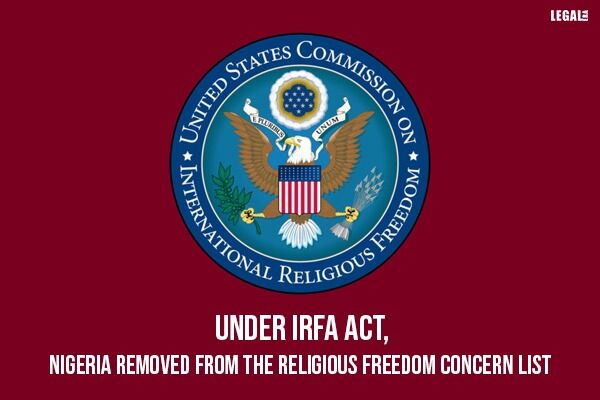
Under IRFA Act, Nigeria removed from the religious freedom concern list
The US Commission on International Freedom listed it as a “Country of Particular Concern in 2009
Pursuant to the International Religious Freedom Act (IRFA), the US Department of State has removed Nigeria from the religious freedom concern list.
In 2009, the US Commission on International Freedom (USCIF) listed Nigeria as a “Country of Particular Concern (CPC). In its 2021 report, it reiterated its recommendation for the country to be included on the CPC list. However, the Department of State removed it from the list.
USCIRF Chairperson Nadine Maenza stated, “USCIRF is disappointed that the State Department did not adopt our recommendations in designating the countries that are the worst violators of religious freedom”
“While the State Department took steps forward on some designations, USCIRF is especially displeased with the removal of Nigeria from its CPC designation, where it was rightfully placed last year, as well as the omission of India, Syria, and Vietnam. We urge the State Department to reconsider its designation based on facts presented in its own reporting,” he added.
It has designated Burma, China, the Democratic People’s Republic of Korea, Eritrea, Iran, Pakistan, Russia, Saudi Arabia, Tajikistan, and Turkmenistan in the (CPC) list. This is the first time that Russia has been listed.
This decision preceded Secretary Antony Blinken’s Nigeria visit to discuss furthering cooperation on global health security, expanding energy access and economic growth, and revitalizing democracy.
Under the Wolf International Religious Freedom Act, the department also designated countries that “engaged in or tolerated severe violations of religious freedom during the previous year” but did not meet all CPC criteria to a “Special Watch List” (SWL). The countries listed in this category were Algeria, Comoros, Cuba, and Nicaragua.
The USCIF, an independent government entity, said that it found “unexplainable” that the Department of State did not treat Nigeria as a country with no severe religious freedom concerns.